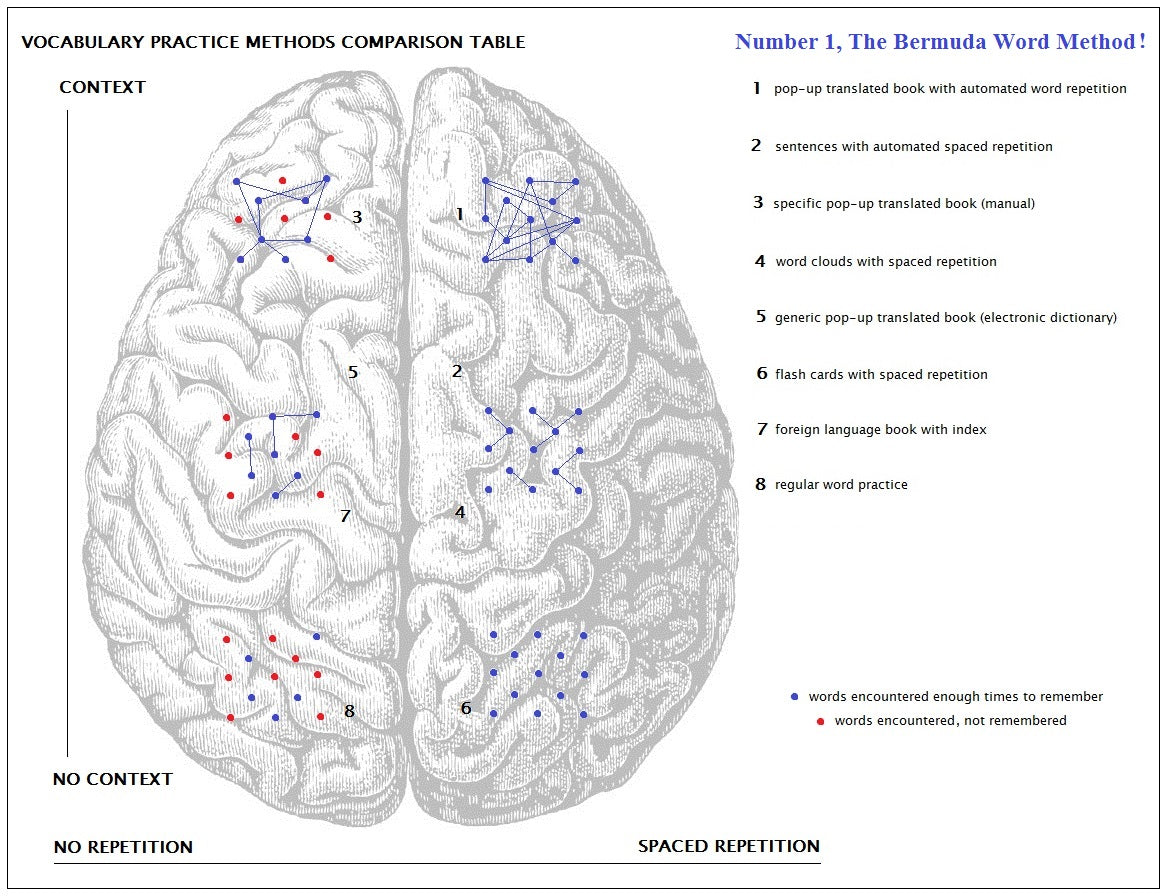Reading Yourself Towards Fluency
Share
First Grow Your Vocabulary
Immersive reading is a satisfying activity that greatly improves your grasp of a language. Where a conversation might make you meet 500 words, a short book already gives you 50,000. Even if your aim is to converse with flair, doing so is only possible with enough vocabulary. You can waste a long time doing painful exercises in communication and still have a very limited vocabulary. Getting fluent in reading and listening will take you only a fraction of that time when doing it the right way, and after that it's much easier getting fluent in writing and speaking.
Writing and speaking are the ability to use whatever you absorbed reading and hearing, so if you didn't practice reading and listening, there's not much to use. Like a child copies its parents, once you are reading or hearing 10,000s of words every day the linguistic structure of sentences will be copied into your memory for later use. Sure you can learn to speak a foreign language by looking at a little text and wordlist every day, it's just very inefficient and slow. It's simple math. And even if you cram a lot of words, if you don't start using them, you'll forget them in a few weeks. Reading is learning AND using the language at the same time!

Learn To Read (and Listen)
So you say reading a foreign language is too difficult. You're right, trying to decipher a foreign text beyond your ability is not what you'd call immersive reading. However, what if the meaning of every word was visible at mouse-over? No incorrect or multiple internet translations or out of context conjugations, but the actual meaning in context of the word or group of words that you're reading, so you can stay immersed in reading the foreign language. Having this power at your fingertips means that instead of deciphering one page in half an hour you can read ten pages in half an hour and start memorizing hundreds of words. Re-reading the text you'll have to look up less words, and if you practice the difficult words separately or re-read them in context of the story, you'll soon be able to read the text by yourself, which means you've memorized hundreds of words fairly easy.
Reading and re-reading texts teaches you not only words but the structure of the foreign language as well. Language is build up out of stories describing situations or events or tasks or even conversations, but they're all groups of interconnected sentences, aka stories. Absorbing language through stories is infinitely more easy than through hundreds of irrelevant little texts about hotels and restaurants, however useful they may be. If your aim is to go on holiday, order your food in a foreign language, and go home again, I'll say no more, but if you want to get everything out of a foreign language, read, read, read. And you'll see that with the right tools it's very easy as well.

Reading And Learning Efficiently
When trying to expand your vocabulary through reading, memorizing low frequency or rare words is quite difficult, because you might meet them only once. Meeting most words of a language enough times in texts requires you to read a million words, for example. If you're working with a dictionary this number is prohibitive for most language students. To get to the level where you don't need to look up words more than once every few pages there is a faster way. First of all, you're restricted to pop-up translated or interlinear texts, which tell you the correct meaning of every word in a glance, so you can continue reading. This will ensure that you only need about 15,000 to 30,000 words of text to learn the high frequency words of a language. The next thing you need is an integrated spaced repetition system supporting repeated practice of lower frequency words, so that any rare word you encounter inside those stories totalling 30,000 words will be memorized, and you don't have to go to one million words of practice texts before you memorized enough words to be able to read bestsellers.
Because that is the goal of efficient reading and learning, to get to a level where you only need to look up a small number of words so reading a bestseller becomes fluent enough to remain immersive. Once you're reading on your own, your grasp on the whole structure of the language will become stronger than it would ever have been possible by any given course. That's what we at Bermuda Word would like to help you with. Become independent at reading and listening to the foreign language of your choice.

